SELF-REGULATION, EMOTION EXPRESSION & CLASSROOM ...
SELF-REGULATION, EMOTION EXPRESSION & CLASSROOM ...
SELF-REGULATION, EMOTION EXPRESSION & CLASSROOM ...
Create successful ePaper yourself
Turn your PDF publications into a flip-book with our unique Google optimized e-Paper software.
each other, instead, together the functioning of the hippocampus and the amygdala<br />
comprise a central nervous system component that is activated by sensory input (i.e.,<br />
external stimuli) and internal/emotional information such as fear, anger or joy<br />
(Charmandari, Tsigos, & Chrousos, 2005; Metcalfe & Jacobs, 1998; Miller et al., 2004;<br />
Zelazo et al., 2010). A potential linkage of these systems might stem from the anterior<br />
cingulate cortex (ACC), which has been historically shown to function as the brain’s error<br />
and correction device. More specifically, the ACC serves as a component of attention<br />
that works toward controlling cognitive and affective features of one’s regulatory<br />
experience (Bush, Luu, & Posner, 2000).<br />
Many of the findings from the neuroscience literature are easily translated into an<br />
applied developmental perspective. For example, although cool executive control is<br />
more likely to be elicited by relatively abstract, decontextualized problems, both hot<br />
and cool executive control are required for problems that involve the regulation of<br />
motivation (Zelazo & Cunningham, 2007). Consequently, we find that hot executive<br />
control primarily comes into play when a child really cares about the problems they are<br />
attempting to solve. Both hot (control processes centered on reward) and cool (higherorder<br />
processing of more abstract information) executive control play a significant role<br />
in a child’s self-regulation in such situations.<br />
Another group of theorists have attempted to better understand the foundations of<br />
self-regulation through the lens of a child’s early classroom experience. Although the<br />
roots of self-regulation are still being debated, it is commonly understood that the<br />
13



![[Sample B: Approval/Signature Sheet] - George Mason University](https://img.yumpu.com/21978828/1/190x245/sample-b-approval-signature-sheet-george-mason-university.jpg?quality=85)
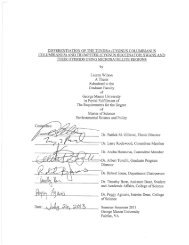
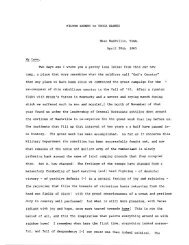
![[Sample B: Approval/Signature Sheet] - George Mason University](https://img.yumpu.com/18694905/1/190x245/sample-b-approval-signature-sheet-george-mason-university.jpg?quality=85)
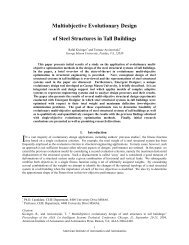
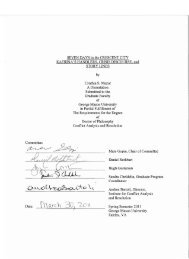
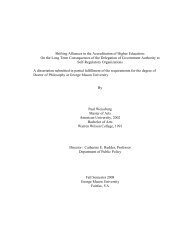
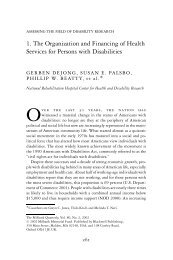
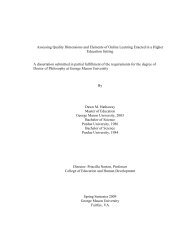
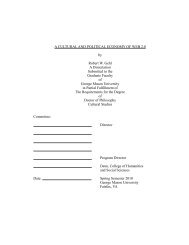
![[Sample B: Approval/Signature Sheet] - George Mason University](https://img.yumpu.com/18694552/1/189x260/sample-b-approval-signature-sheet-george-mason-university.jpg?quality=85)
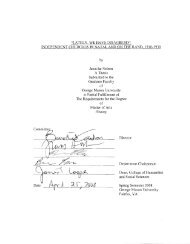
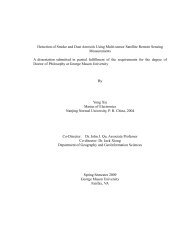
![[Sample B: Approval/Signature Sheet] - George Mason University](https://img.yumpu.com/18694474/1/190x245/sample-b-approval-signature-sheet-george-mason-university.jpg?quality=85)